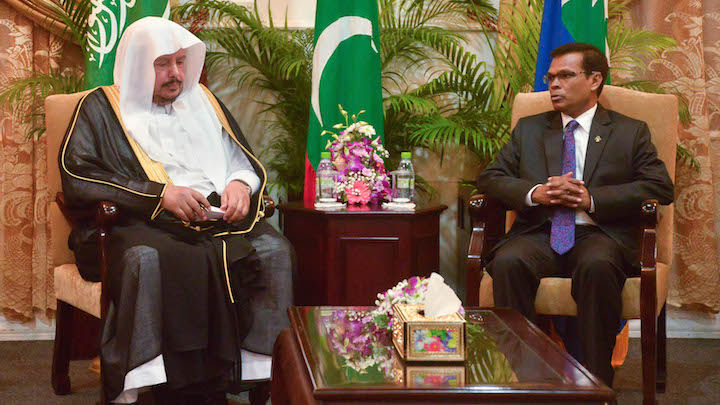Maldives parliament to form joint committees with Saudi Arabia’s Shura Council
The Maldivian parliament and Saudi Arabia’s Shura Council have agreed to form “integrated joint committees” to work together on issues of mutual interest such as the threat of terrorism. The decision was revealed during an ongoing visit by Shura Council Speaker Dr Abdulla bin Mohamed bin Ibrahim Al-Sheikh.

05 Jan 2016, 9:00 AM
The Maldivian parliament and Saudi Arabia’s Shura Council have agreed to form “integrated joint committees” to work together on issues of mutual interest including terrorism.
The decision was announced on Monday during the ongoing visit by Shura Council Speaker Dr Abdulla bin Mohamed bin Ibrahim Al-Sheikh.
Dr Abdulla – the first Shura Council speaker to visit the Maldives – held separate meetings with Foreign Minister Dunya Maumoon and People’s Majlis Speaker Abdulla Maseeh Mohamed yesterday.
During the meeting with his Maldivian counterpart, Dr Abdulla also agreed to form “parliamentary friendship groups” in both legislatures.
Become a member
Get full access to our archive and personalise your experience.
Already a member?
Discussion
No comments yet. Be the first to share your thoughts!
No comments yet. Be the first to join the conversation!
Join the Conversation
Sign in to share your thoughts under an alias and take part in the discussion. Independent journalism thrives on open, respectful debate — your voice matters.




